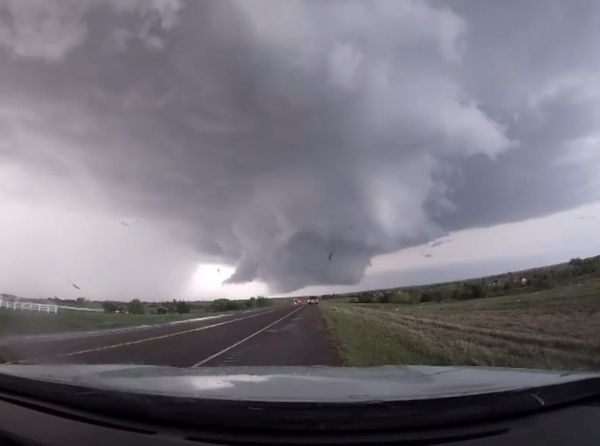For those living near the Great Lakes who think they are somewhat insulated from the effects of climate change, a 1,695-word draft of a National Climate Assessment report released Monday included some sobering news: Lakes face a growing threat of hazardous algae blooms.
That includes Lake Michigan, the source of drinking water for Chicago and many suburbs.
Algae blooms, fueled by warmer water and increases in fertilizer washed into lakes by stronger storms — both attributed to climate change — can be dangerous, because some blooms release toxins into the water.
In 2014, Toledo, Ohio, had to shut down its water system temporarily because of algae in Lake Erie. Green Bay in Wisconsin and Saginaw Bay in Michigan now also suffer from algae blooms. Joel Brammeier, president and CEO of the Alliance for the Great Lakes, tells us even Lake Superior, generally the cleanest of the Great Lakes, is getting algae blooms on its western edge, partly because Lake Superior is the fastest-warming freshwater lake in the world.
The algae also forms floating mats that make it less pleasant to swim and go sport fishing. That undermines the Great Lakes’ outdoor economy. And warmer water in the Great Lakes will make it easier for invasive species to thrive.
Unfortunately, it doesn’t look like the global community is ready to respond to the threat of climate change in a way that is adequate. Even as delegates gathered this week in Egypt for the 2022 United Nations Climate Change Conference, it is clear that nations are not stepping up to the commitments they have already made to reduce greenhouse gas emissions, let alone setting more stringent ones. And the closely divided U.S. House and Senate that will emerge after the midterm elections do not appear poised to enact strong climate change legislation.
Metro areas around the world, including Chicago, will have to step up. That includes restoring the city’s Department of the Environment in Chicago, which was disbanded more than a decade ago.
The National Climate Assessment draft is stark. Among the alarming threats it cites are:
- Over the past 50 years, the United States has warmed 68% faster than the planet as a whole. The U.S. has suffered from some of the worse increases in sea level rise.
- “Far-reaching and worsening” calamities will beset every region of the United States, including causing more heat waves and flooding in the Midwest, along with reduced crop yields.
- The frequency of billion-dollar disasters has increased from once every four months in the 1980s to once every three weeks. The United States is experiencing some of the most severe sea-level rise on the planet. All of us will pay for that, directly or indirectly.
- Climate change will directly threaten drinking water, infrastructure, housing, farming, fishing, natural habitat and important ecosystems.
The public can urge Washington to confront climate change in a more robust way. In Chicago and Illinois, the public also should push for doing more to help the environment. The passage on Tuesday of a referendum to help the Cook County forest preserves was a step forward. So was Illinois’ Climate & Equitable Jobs Act, which Gov. J.B. Pritzker signed last year. More is needed.
The harmful effects of climate change, from wildfires to melting icecaps to more powerful hurricanes, are just going to intensify. The decades-long dilly-dallying and outright denial of climate change from some have made the challenges far greater. On Sunday, the World Meteorological Organization said the Earth probably has just experienced its warmest eight years on record. Last month, the International Energy Agency called on governments to triple their annual clean energy investments to $4 trillion by 2030.
As dire as they are, the challenges must be met with every tool that humans can possibly devise.
Want to write a letter to the editor or submit an op-ed for the Sun-Times? See our guidelines.







